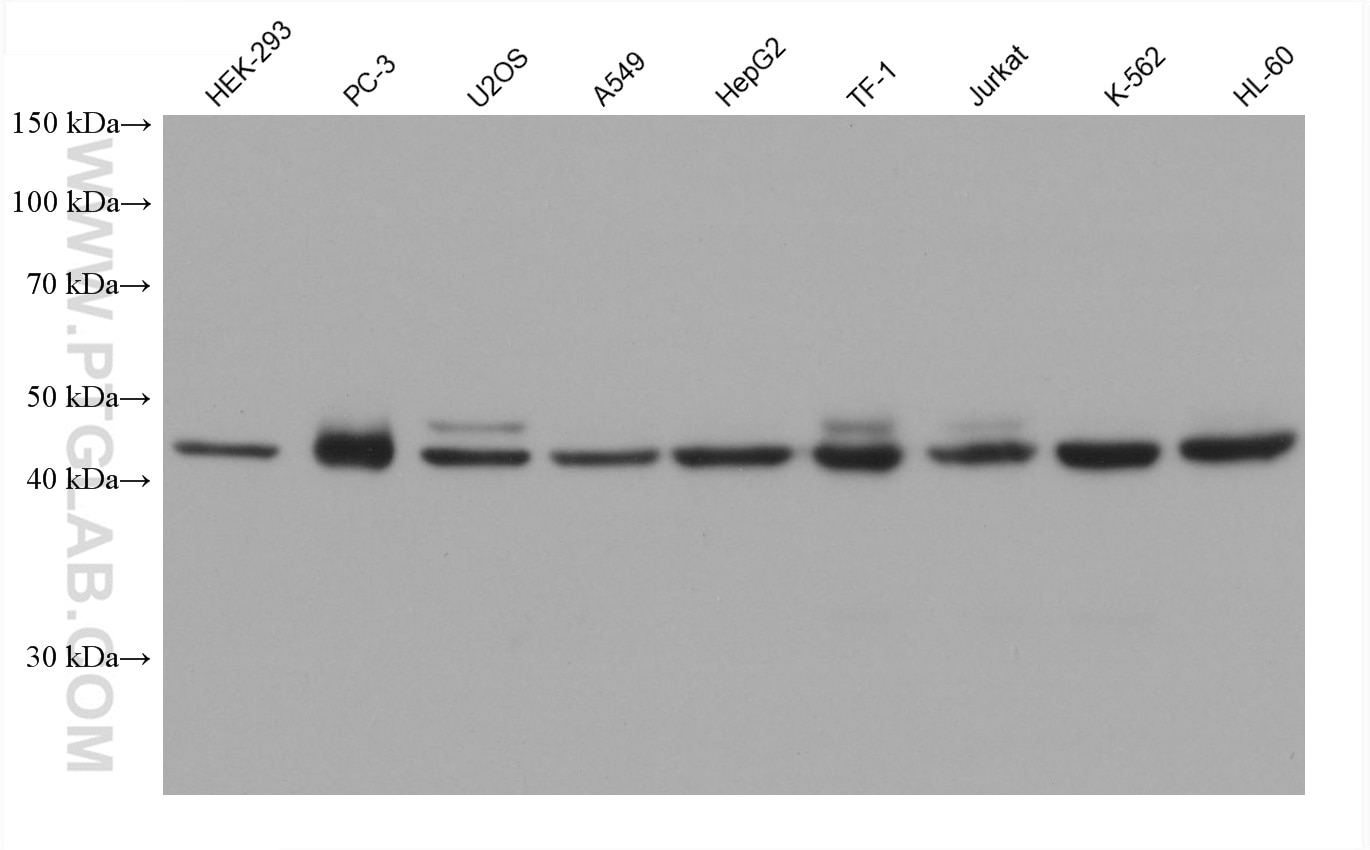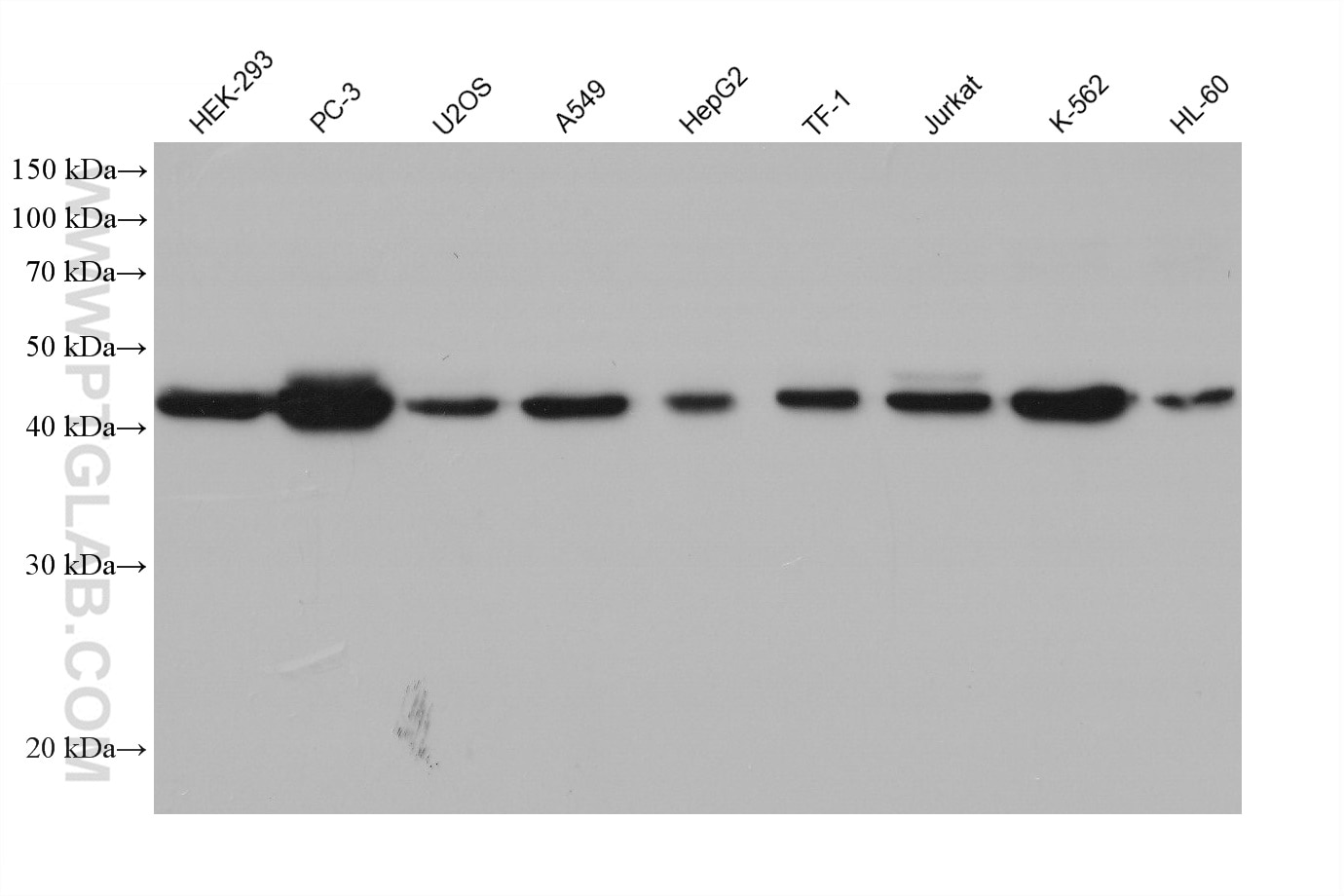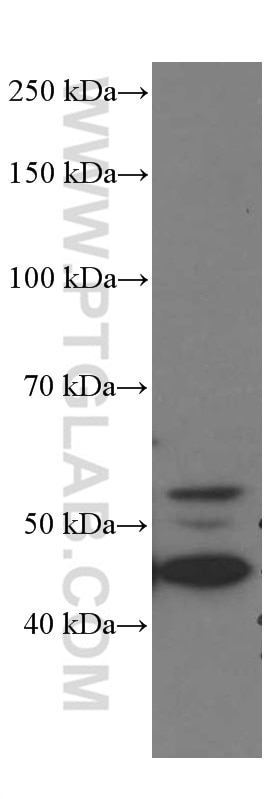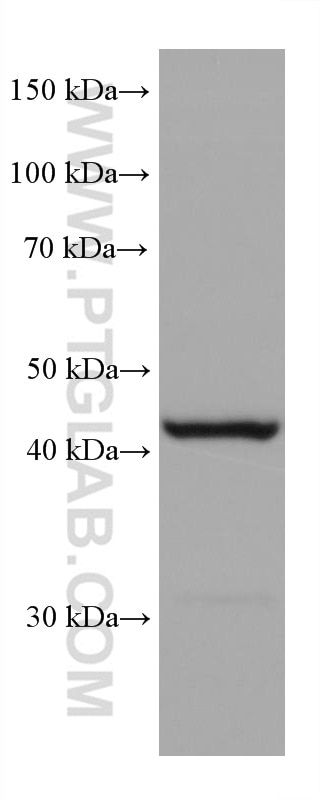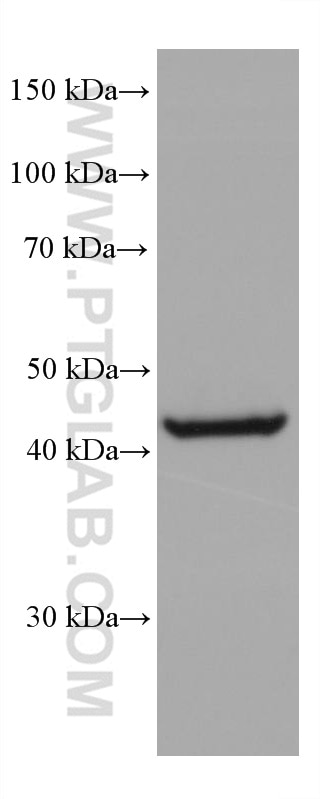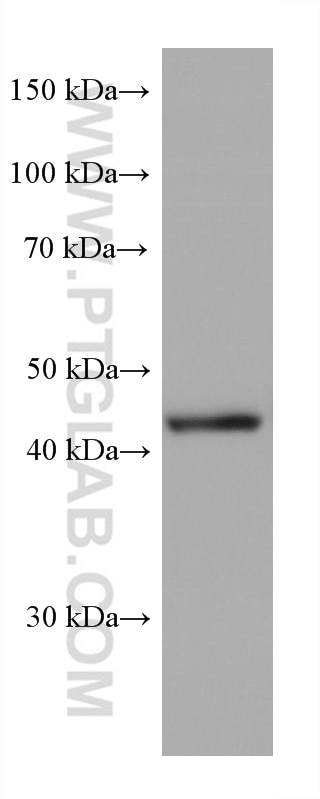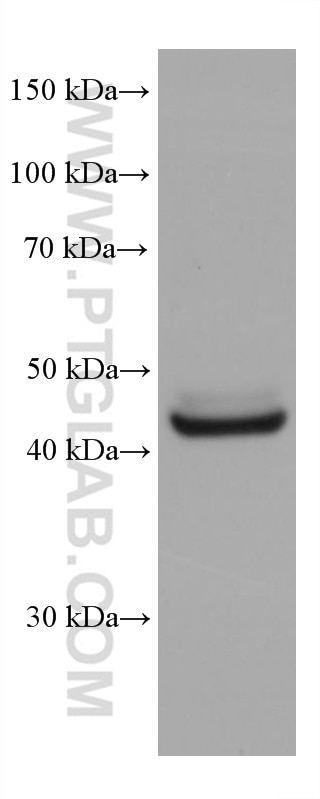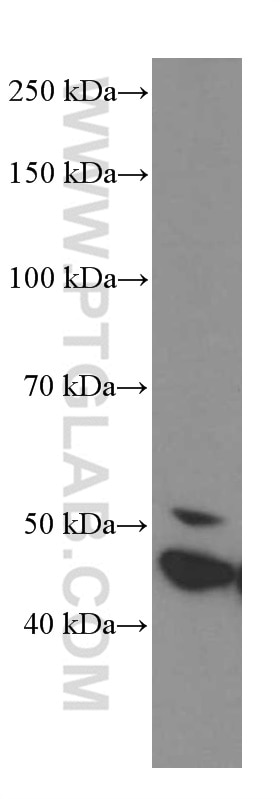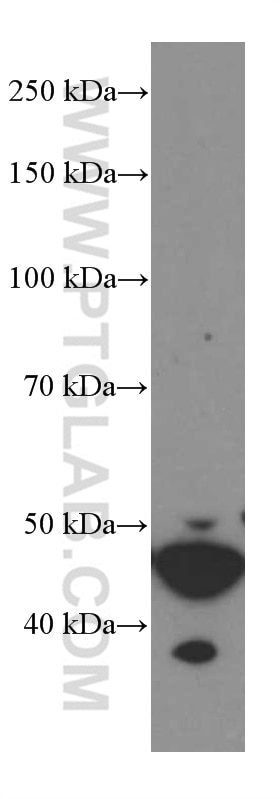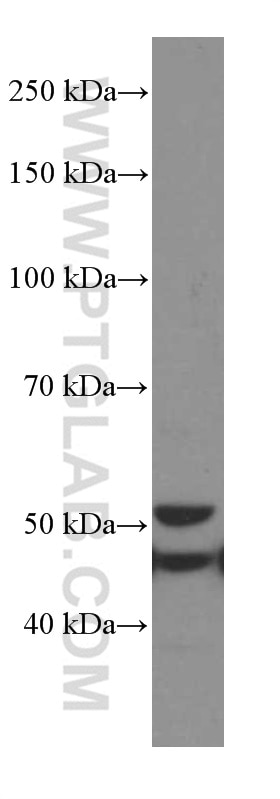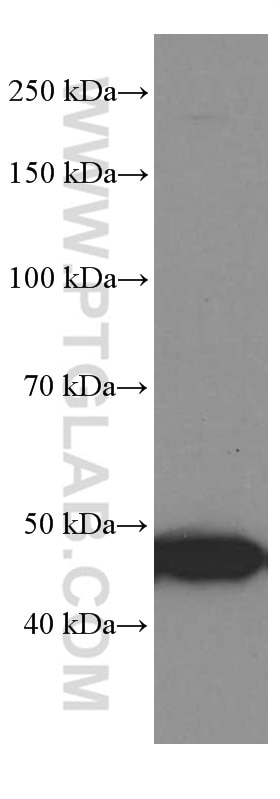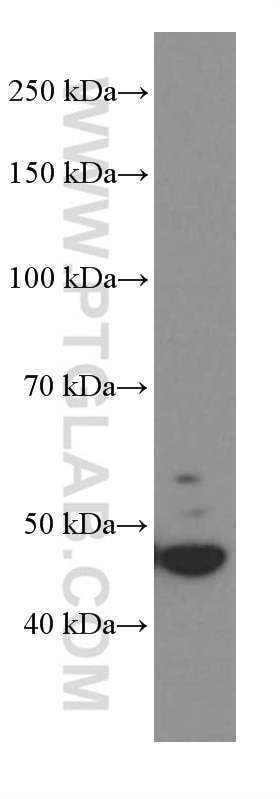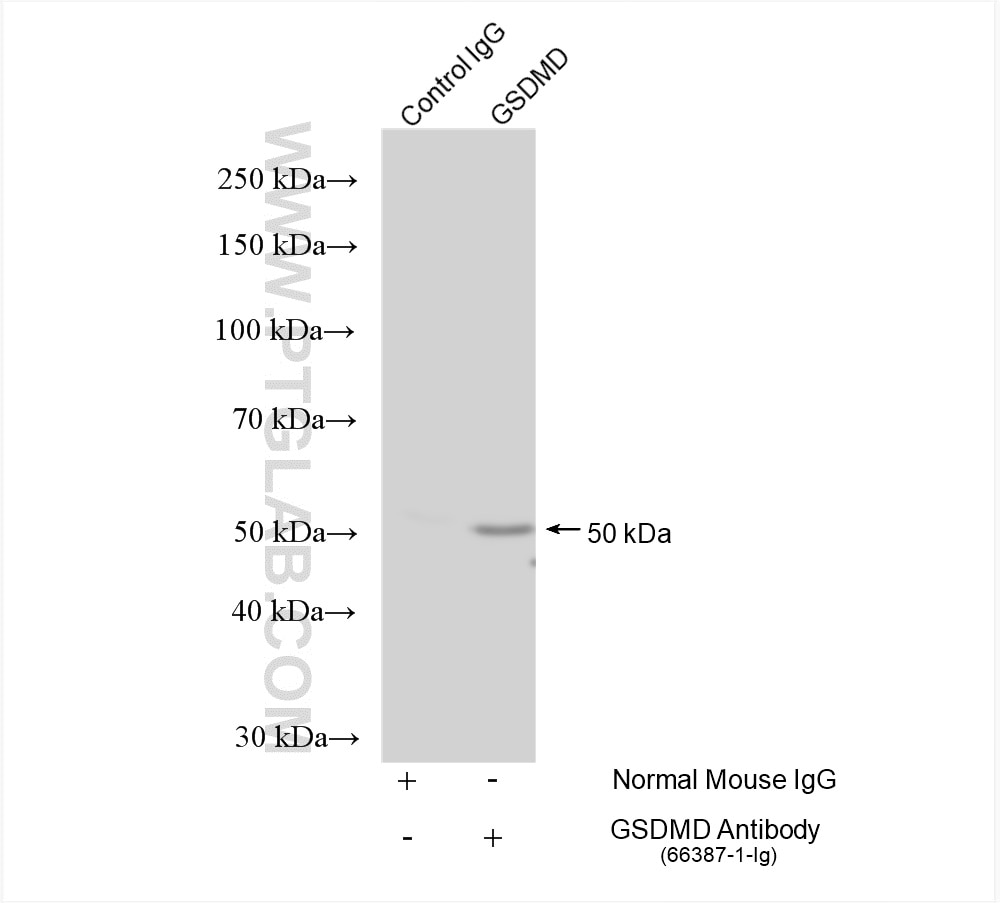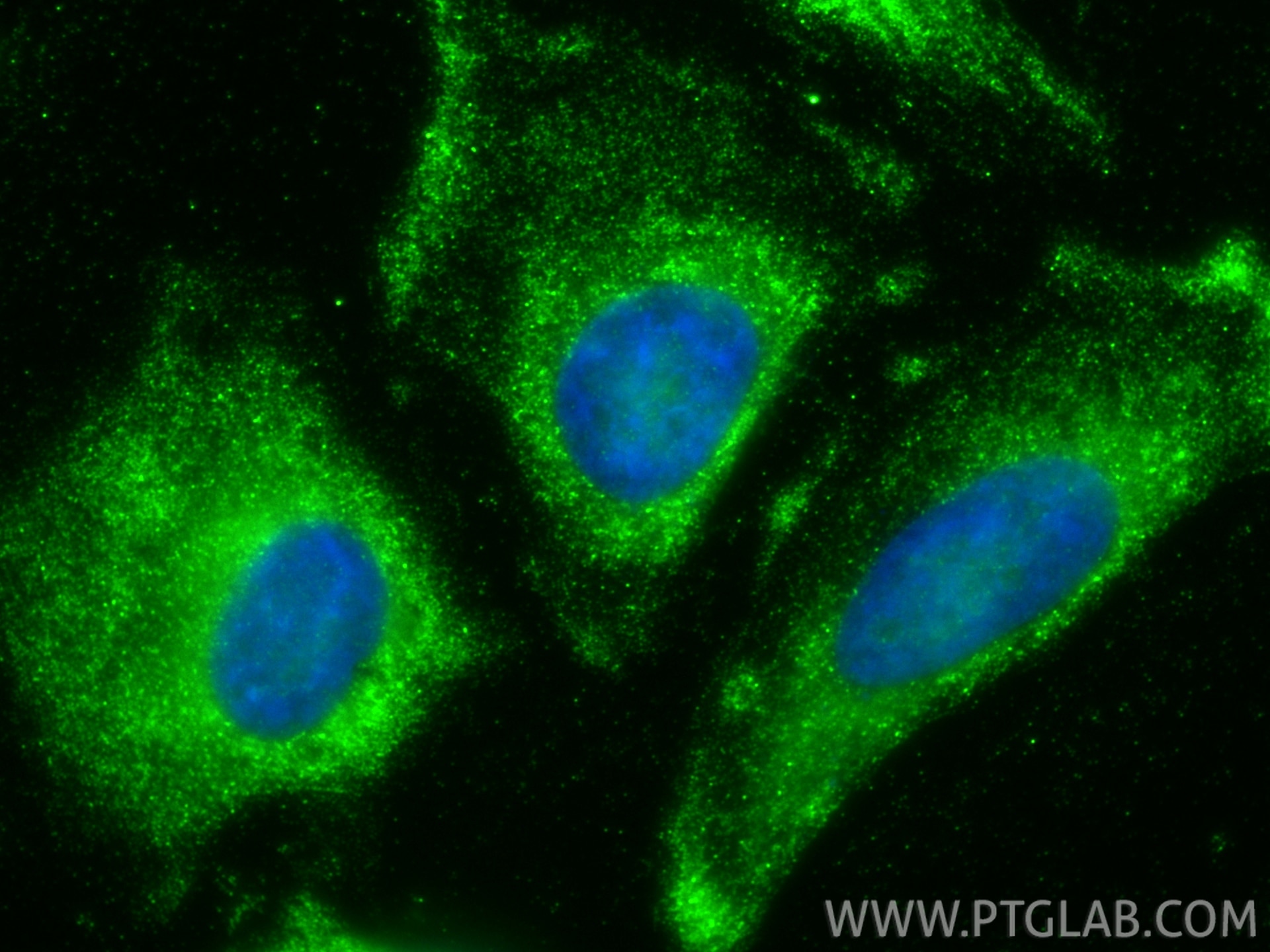Anticorps Monoclonal anti-GSDMD
GSDMD Monoclonal Antibody for WB, IF/ICC, IP, ELISA
Hôte / Isotype
Mouse / IgG2a
Réactivité testée
Humain et plus (2)
Applications
WB, IHC, IF/ICC, IP, ELISA
Conjugaison
Non conjugué
CloneNo.
2E6C7
N° de cat : 66387-1-Ig
Synonymes
Galerie de données de validation
Applications testées
| Résultats positifs en WB | cellules HEK-293, cellules A431, cellules A549, cellules COLO 320, cellules EC109, cellules HepG2, cellules HL-60, cellules Jurkat, cellules K-562, cellules PC-3, cellules Raji, cellules TF-1, cellules U2OS, tissu de côlon humain, tissu d'intestin grêle humain |
| Résultats positifs en IP | cellules THP-1, |
| Résultats positifs en IF/ICC | cellules HeLa, |
Dilution recommandée
| Application | Dilution |
|---|---|
| Western Blot (WB) | WB : 1:5000-1:50000 |
| Immunoprécipitation (IP) | IP : 0.5-4.0 ug for 1.0-3.0 mg of total protein lysate |
| Immunofluorescence (IF)/ICC | IF/ICC : 1:400-1:1600 |
| It is recommended that this reagent should be titrated in each testing system to obtain optimal results. | |
| Sample-dependent, check data in validation data gallery | |
Applications publiées
| WB | See 47 publications below |
| IHC | See 4 publications below |
| IF | See 13 publications below |
Informations sur le produit
66387-1-Ig cible GSDMD dans les applications de WB, IHC, IF/ICC, IP, ELISA et montre une réactivité avec des échantillons Humain
| Réactivité | Humain |
| Réactivité citée | rat, Humain, souris |
| Hôte / Isotype | Mouse / IgG2a |
| Clonalité | Monoclonal |
| Type | Anticorps |
| Immunogène | GSDMD Protéine recombinante Ag16827 |
| Nom complet | gasdermin D |
| Masse moléculaire calculée | 484 aa, 53 kDa |
| Poids moléculaire observé | 47-53 kDa |
| Numéro d’acquisition GenBank | BC008904 |
| Symbole du gène | GSDMD |
| Identification du gène (NCBI) | 79792 |
| Conjugaison | Non conjugué |
| Forme | Liquide |
| Méthode de purification | Purification par protéine A |
| Tampon de stockage | PBS with 0.02% sodium azide and 50% glycerol |
| Conditions de stockage | Stocker à -20°C. Stable pendant un an après l'expédition. L'aliquotage n'est pas nécessaire pour le stockage à -20oC Les 20ul contiennent 0,1% de BSA. |
Informations générales
GSDMD is a 53 kDa cytosolic protein and a member of the gasdermin protein family, which features 6 members in humans (GSDMA, -B, -C, -D, -E and -F. GSDMD was identified as the executioner of inflammasome-associated pyroptosis. Caspase-1, -11, or -4 cleave GSDMD after an aspartate residue within a central linker domain (D275 in humans and D276 in mice) to generate a 31-kDa N-terminal GSDMD fragment (GSDMD-NT) and a 22-kDa C-terminal fragment (GSDMD-CT). In addition to the canonical 31/22 kDa cleavage products, a 43 kDa fragment has been observed under specific experimental or pathological conditions. The generation of the 43 kDa fragment was observed upon caspase-3 and -7 activation during apoptosis. This antibody can only detect full-length GSDMD.
Protocole
| Product Specific Protocols | |
|---|---|
| WB protocol for GSDMD antibody 66387-1-Ig | Download protocol |
| IF protocol for GSDMD antibody 66387-1-Ig | Download protocol |
| IP protocol for GSDMD antibody 66387-1-Ig | Download protocol |
| Standard Protocols | |
|---|---|
| Click here to view our Standard Protocols |
Publications
| Species | Application | Title |
|---|---|---|
Mol Cancer Metal-enriched HSP90 nanoinhibitor overcomes heat resistance in hyperthermic intraperitoneal chemotherapy used for peritoneal metastases | ||
PLoS Pathog An NLRP3 inflammasome-triggered cytokine storm contributes to Streptococcal toxic shock-like syndrome (STSLS). | ||
iScience ASC/inflammasome-independent pyroptosis in ovarian cancer cells through translational augmentation of caspase-1 | ||
Biochem Pharmacol Deficiency of purinergic P2X4 receptor alleviates experimental autoimmune hepatitis in mice | ||
Emerg Microbes Infect Acquiring high expression of suilysin enable non-epidemic Streptococccus suis to cause Streptococcal toxic shock-like syndrome (STSLS) through NLRP3 inflammasome hyperactivation. | ||
Mol Med MALAT1 knockdown alleviates the pyroptosis of microglias in diabetic cerebral ischemia via regulating STAT1 mediated NLRP3 transcription |
